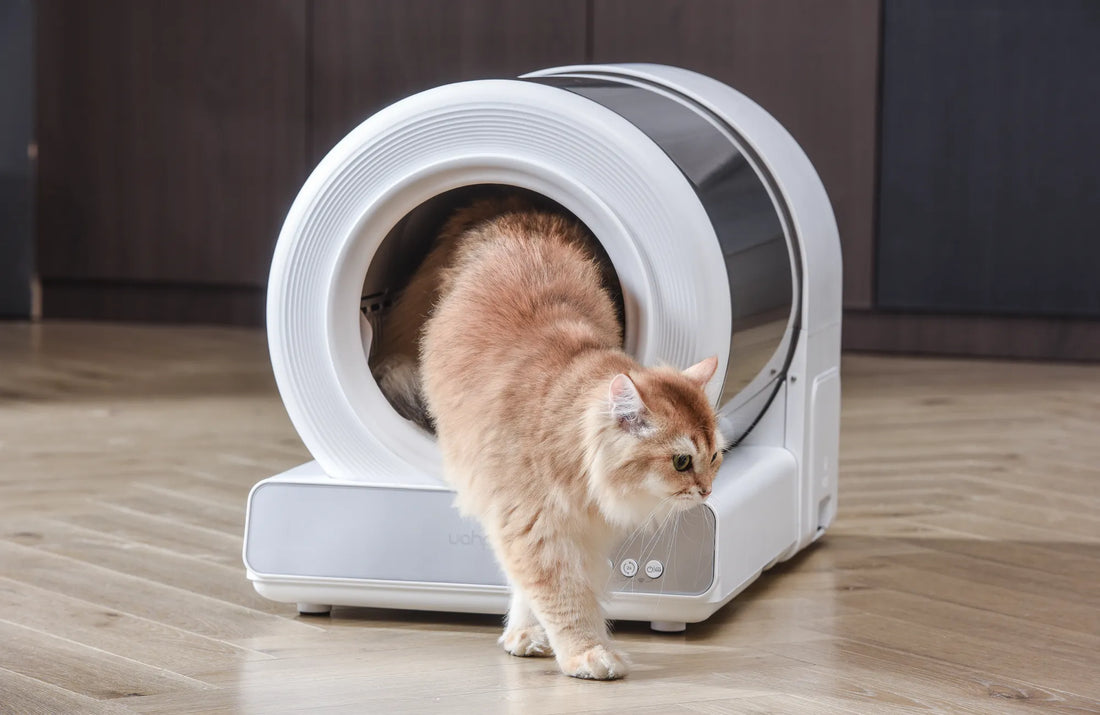If you've noticed your cat throwing up after using the litter box, it's natural to feel concerned. This behavior can be alarming, but understanding the potential causes and solutions can help you address the issue effectively. Cats are sensitive creatures, and their health can be influenced by various factors, from dietary changes to environmental stressors. Let's explore the possible reasons behind this behavior and what you can do to help your feline friend.
Common Causes of Vomiting After Using the Litter Box
There are several reasons why your cat might vomit after using the litter box. Some of the most common causes include:
- Ingestion of Litter: Cats may accidentally ingest litter while grooming themselves, especially if they use clumping or dusty litter. This can irritate their stomach and lead to vomiting.
- Stress or Anxiety: Changes in the environment, such as moving to a new home or introducing a new pet, can cause stress in cats. This stress may manifest as vomiting after using the litter box.
- Dietary Issues: Sudden changes in diet or eating something inappropriate can upset your cat's stomach, leading to vomiting.
- Underlying Health Conditions: Vomiting can be a symptom of various health issues, such as kidney disease, liver problems, or gastrointestinal disorders.
How to Identify the Cause
To determine the cause of your cat's vomiting, observe their behavior and look for any additional symptoms. Here are some steps you can take:
- Monitor Their Litter Box Habits: Pay attention to how often your cat uses the litter box and whether there are any changes in their urine or stool.
- Check for Other Symptoms: Look for signs of lethargy, loss of appetite, or changes in behavior that may indicate an underlying health issue.
- Review Their Diet: Consider whether there have been any recent changes in your cat's diet or if they have access to foods that could be causing an upset stomach.
- Assess Their Environment: Think about any recent changes in your home that could be causing stress or anxiety for your cat.
Effective Solutions to Address the Issue
Once you've identified the potential cause, you can take steps to address the issue. Here are some effective solutions:
- Switch to a Different Type of Litter: If you suspect that your cat is ingesting litter, consider switching to a non-clumping or dust-free litter that is less likely to cause irritation.
- Reduce Stress: Create a calm and comfortable environment for your cat. Provide plenty of hiding spots, scratching posts, and toys to help them feel secure.
- Adjust Their Diet: Gradually transition your cat to a new diet if necessary, and ensure they have access to fresh water at all times.
- Consult a Veterinarian: If your cat's vomiting persists or is accompanied by other symptoms, it's important to seek professional advice. A veterinarian can perform a thorough examination and recommend appropriate treatment.
Preventive Measures to Keep Your Cat Healthy
Preventing vomiting after using the litter box involves maintaining your cat's overall health and well-being. Here are some preventive measures you can take:
- Regular Vet Check-ups: Schedule regular veterinary visits to monitor your cat's health and catch any potential issues early.
- Maintain a Clean Litter Box: Keep the litter box clean and free of waste to reduce the risk of your cat ingesting harmful bacteria.
- Provide a Balanced Diet: Feed your cat a balanced diet that meets their nutritional needs and avoid giving them table scraps or foods that could upset their stomach.
- Minimize Environmental Stress: Keep your cat's environment stable and avoid making sudden changes that could cause stress or anxiety.
By understanding the potential causes of your cat's vomiting and taking proactive steps to address the issue, you can help ensure your feline companion stays healthy and happy. Remember, if you're ever in doubt or if the problem persists, consulting a veterinarian is always the best course of action.
If your cat is throwing up after using the litter box, don't panic. With the right approach, you can identify the cause and take steps to resolve the issue. Your cat's health and well-being are worth the effort, and addressing the problem promptly can prevent more serious complications down the line. Take action today to help your furry friend feel their best!













